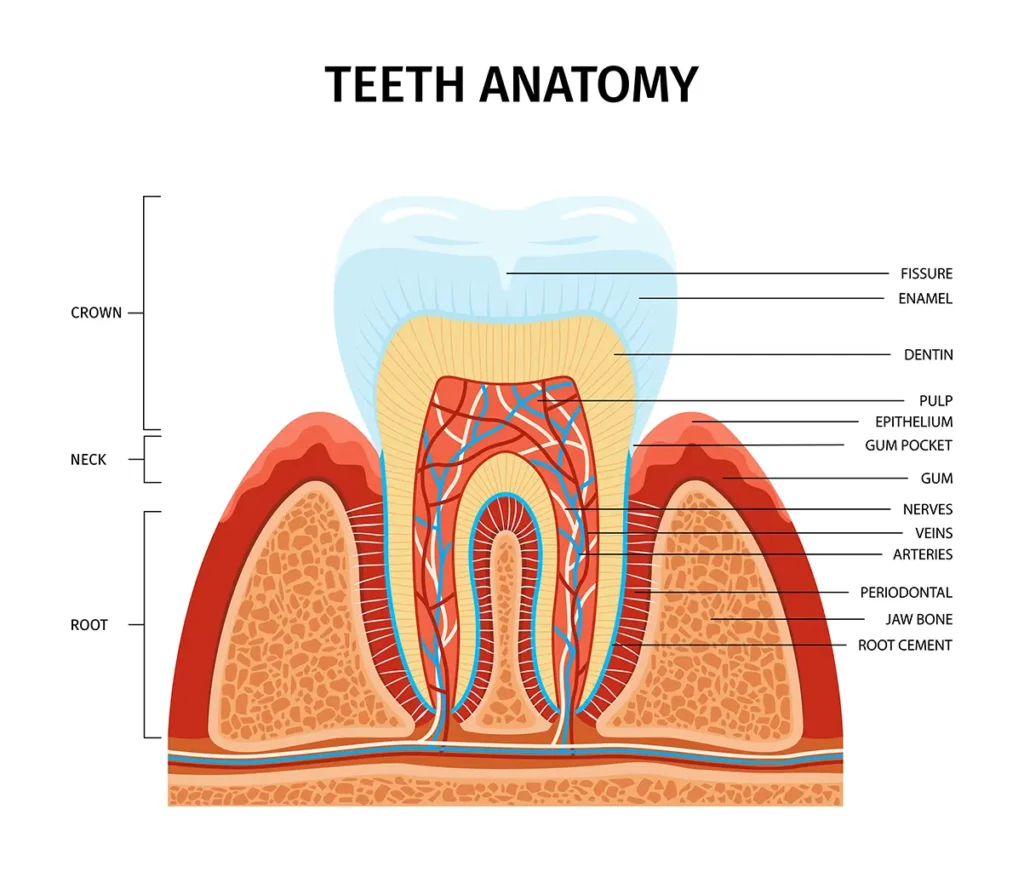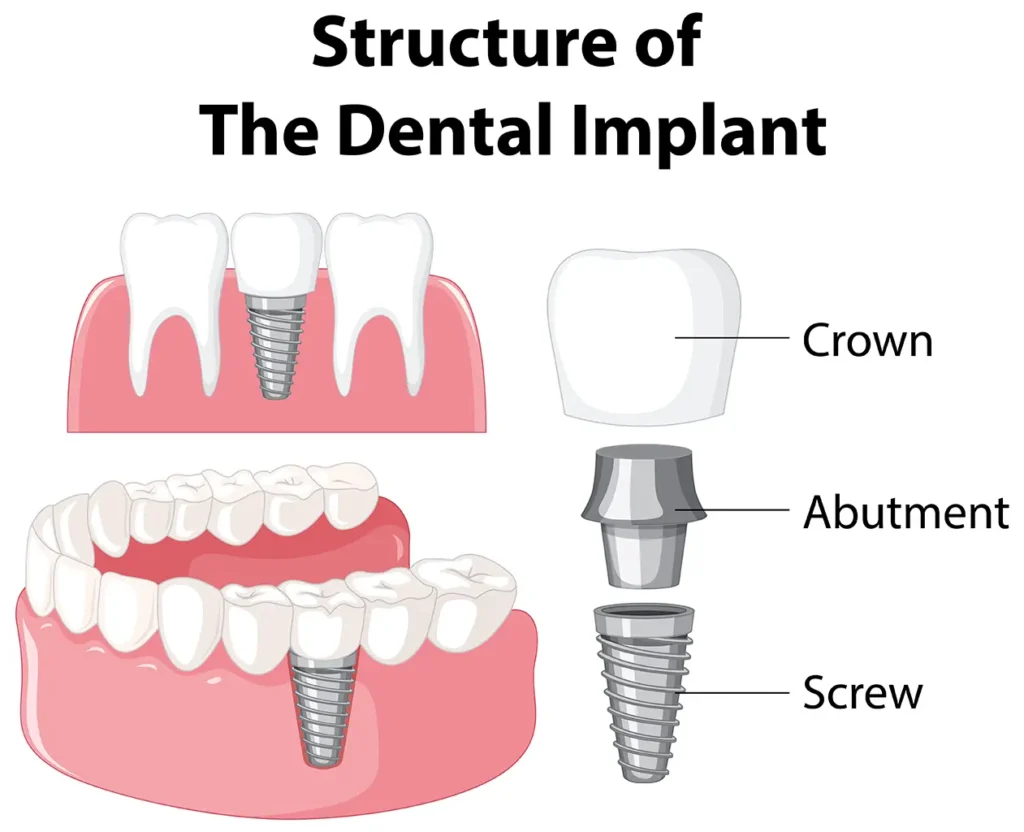Table of Contents
Tooth decay is one of the most common dental problems worldwide, affecting individuals of all ages. While it may start as a minor issue, if left untreated, it can lead to severe consequences for your oral health. This article delves into what tooth decay is, its causes, how it impacts your oral health, and the solutions available, including the role of dental implants. At Montana Center for Implants and Dentures, we are dedicated to helping you maintain a healthy, beautiful smile, and providing the most effective treatment solutions.
What is Tooth Decay?
Tooth decay, also known as dental caries or cavities, is the destruction of the tooth’s hard tissues, namely the enamel and dentin, caused by bacterial activity in the mouth. This process begins when plaque, a sticky film of bacteria, forms on the surface of the teeth. When you consume foods or drinks high in sugars and starches, the bacteria in plaque produce acids that attack the enamel, gradually wearing it down and leading to cavities.
If not addressed early, it can progress deeper into the tooth, affecting the dentin and potentially reaching the pulp, where the tooth’s nerves and blood vessels are located. This can result in pain, infection, and even tooth loss.

Tooth Decay Causes: What Leads to Cavities?
Understanding the causes is essential for prevention and effective treatment. Here are the primary factors that contribute to the development of cavities:
Poor Oral Hygiene:
Inadequate brushing and flossing allow plaque to build up on the teeth, leading to the formation of acids that erode the enamel. Regular oral hygiene practices are crucial to prevention.
Diet High in Sugars and Starches:
Consuming a diet rich in sugary and starchy foods fuels the bacteria in your mouth, causing them to produce more acid. Frequent snacking on sugary treats, sodas, and other carbohydrates increases the risk.
Dry Mouth:
Saliva plays a vital role in washing away food particles and neutralizing acids in the mouth. A decrease in saliva production, often due to medication or certain medical conditions, can lead to a higher risk of tooth decay.
Plaque Buildup:
Plaque that isn’t removed through daily oral care can harden into tartar, which is more challenging to remove and can lead to the development of cavities.
Frequent Snacking or Sipping:
Eating or drinking sugary substances frequently throughout the day gives the bacteria in your mouth more fuel to produce acids that attack your teeth.
Age and Genetics:
Children and older adults are more susceptible. Additionally, genetics can play a role in how prone an individual is to cavities, including factors like enamel strength and saliva composition.
How Tooth Decay Impacts Oral Health
Tooth decay doesn’t just lead to cavities; it can have a far-reaching impact on your overall oral health. Here’s how it can affect you:
Tooth Pain and Sensitivity:
As tooth decay progresses, it can cause significant discomfort. The erosion of enamel and dentin exposes the inner layers of the tooth, leading to sensitivity, especially when consuming hot, cold, or sweet foods and drinks.
Infections and Abscesses:
When decay reaches the pulp of the tooth, it can result in a bacterial infection. This can lead to the formation of an abscess, a pocket of pus that forms at the root of the tooth, causing severe pain and swelling.
Tooth Loss:
If left untreated, severe tooth decay can lead to the complete destruction of the tooth, making extraction necessary. Losing a tooth not only affects your ability to chew and speak but also impacts the alignment of your remaining teeth.
Gum Disease:
The bacteria that causes decay can also affect your gums, leading to gingivitis and periodontitis. These conditions can result in gum recession, tooth loss, and damage to the bone supporting your teeth.
Aesthetic Concerns:
Cavities and decay can lead to visible holes or discoloration in the teeth, which can affect your smile and self-confidence.
Overall Health Implications:
The effects aren’t limited to your mouth. Chronic infections and inflammation in the mouth have been linked to other health problems, including heart disease, diabetes, and respiratory infections.
How Can I Fix My Tooth Decay? Treatment Options
There are several treatment options available depending on the severity of the decay:
Fluoride Treatments:
For early-stage tooth decay, fluoride treatments can help restore the enamel and reverse the damage. These treatments are often applied in the dentist’s office and can be in the form of a gel, foam, or varnish.
Dental Fillings:
When cavities have formed, a dental filling is the most common treatment. The decayed portion of the tooth is removed, and the cavity is filled with a material such as composite resin, amalgam, or porcelain to restore the tooth’s function and appearance.
Crowns:
For more extensive decay, a crown may be necessary to cover and protect the damaged tooth. Crowns are custom-made to fit over the entire tooth, providing strength and durability.
Root Canal Therapy:
If the decay has reached the pulp of the tooth, a root canal may be required. This procedure involves removing the infected pulp, cleaning the inside of the tooth, and sealing it to prevent further infection. After a root canal, the tooth is typically restored with a crown.
Tooth Extraction and Dental Implants:
In cases where the tooth is too damaged to be saved, extraction may be necessary. Once a tooth is extracted, it’s essential to consider a replacement option to prevent further complications. This is where dental implants come into play.

The Role of Dental Implants in Treating Tooth Decay
When tooth decay leads to tooth loss, dental implants offer a reliable and long-lasting solution. A dental implant is an artificial tooth root made of titanium that is surgically placed into the jawbone. Once the implant integrates with the bone, a crown is attached to restore the appearance and function of the missing tooth.
Why Choose Dental Implants?
- Natural Look and Feel:
Dental implants are designed to mimic the look and function of natural teeth. The crown is custom-made to match the color and shape of your existing teeth, providing a seamless appearance. - Durability:
Unlike dentures or bridges, dental implants are a permanent solution. With proper care, they can last a lifetime. - Preservation of Jawbone:
When a tooth is lost, the jawbone can deteriorate over time due to lack of stimulation. Dental implants provide the necessary stimulation to maintain bone density and prevent bone loss. - Improved Oral Function:
Dental implants restore your ability to chew and speak naturally, without the slipping or discomfort associated with dentures. - Prevention of Further Oral Health Issues:
Replacing a missing tooth with a dental implant helps maintain the alignment of your remaining teeth and prevents shifting that could lead to additional dental problems.
At Montana Center for Implants and Dentures, we specialize in providing high-quality dental implants to restore your smile and improve your oral health. Dr. Josh Muir, Dr. Tanner Townsend and, our experienced team will work with you to determine the best treatment plan based on your individual needs.
Preventing Tooth Decay: Tips for a Healthy Smile
While treatments are available, the best approach is prevention. Here are some tips to help you maintain a healthy, decay-free smile:
Practice Good Oral Hygiene:
Brush your teeth at least twice a day with fluoride toothpaste, floss daily, and use an antiseptic mouthwash to reduce plaque buildup.
Regular Dental Checkups:
Visit your dentist regularly for checkups and cleanings. Early detection of tooth decay can prevent it from progressing to more severe stages.
Healthy Diet:
Limit your intake of sugary and starchy foods. Opt for a balanced diet rich in fruits, vegetables, and whole grains, which contribute to overall oral health.
Drink Plenty of Water:
Water helps wash away food particles and neutralizes acids in the mouth. It also stimulates saliva production, which is essential for maintaining oral health.
Use Dental Sealants:
Dental sealants are a protective coating applied to the chewing surfaces of the back teeth. They can help prevent cavities by blocking food and bacteria from getting trapped in the grooves of the teeth.
Conclusion
Tooth decay is a serious dental issue that can have far-reaching effects on your oral health and overall well-being. Understanding the causes and consequences of tooth decay is essential in taking proactive steps to prevent it. However, if tooth decay does occur, there are several effective treatments available, with dental implants offering a reliable solution for tooth loss.
At Montana Center for Implants and Dentures, we are committed to helping you maintain a healthy smile through comprehensive dental care and advanced treatment options. If you’re concerned about tooth decay or considering dental implants, contact us today to schedule a consultation. Our team is here to guide you on the path to optimal oral health and a beautiful, confident smile.





